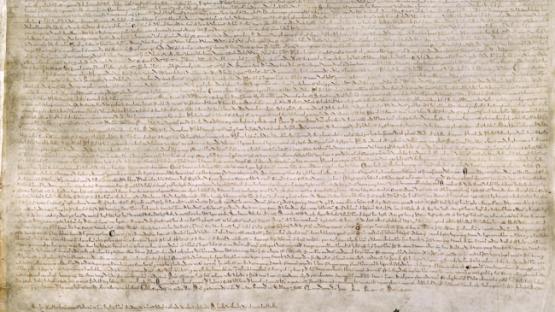From Britain, with Bulk Love: A Dark Digital Magna Carta

The UK Government introduced a draft surveillance bill on Wednesday – the innocuously named 'Investigatory Powers Bill'. Trumpeted as 'world leading' by the Home Secretary, the only sense in which this is true is that other Governments around the world will now also seek a mandate for mass surveillance and hacking.
Until recently, the idea that a Government agent could hack a mobile phone and turn on its camera and microphone to bug a conversation in a room was the realm of science fiction, or a lazy spy movie, but such powers are now within reach of every government. This week the UK Government proposed the 'Investigatory Powers Bill', which would enshrine in law their right to use these deeply intrusive capabilities. Yet nobody is asking whether this is a good idea - instead we are only asking 'how much?' and 'how far?' can governments hack, steal, grab, watch, listen and take.
Forced into the open by Edward Snowden, the UK Government has rewritten its surveillance laws after it was described by one key government advisor as “undemocratic”. Shamed repeatedly for proposing expansive powers on a regular basis, on this occasion they had to introduce a draft bill for scrutiny even before they could introduce a final Bill to Parliament. We had hoped this would mean they would be chastened and cautious, as there is now a global discussion on how to constraint the modern, and incredible, government power to watch us all.
Instead, the UK Government is shooting for the moon, and trying to charm the British public that these powers are necessary and proportionate. They are neither. And if we are not careful, it will set a new standard for the rest of the world.
The global debate on surveillance has now reached a new level. Unfortunately it is a new low. A few months ago Congress took a first positive step when it reigned in some of the NSA's surveillance powers in the Freedom Act, signalling to Americans and the world that a modern Government needs modern restraints on their unprecedented surveillance powers. This act by Congress went unmatched globally. The UK government's new proposal signals their intent in going in the opposite direction, wanting more power than ever.
Already the UK carries the standard for what not to do. Often the National Security Agency would rely on GCHQ's weaker legal regime to undertake their shared spying activities.
The UK Government announced with great proclamation that for the first time in its history, there shall be judicial warrants for wiretapping. But this is nothing but misdirection. Interception warrants in the UK will continue to be signed by politicians - the equivalent of the Attorney General. Now, with great fanfare, British citizens are told they should be grateful that the Government is willing to let a judge look at the warrant - to ensure that the politician did his or her job. That's not a judicial warrant - it's not even a judge marking the homework of the politician. Rather, it is a judge being asked to ensure that the homework wasn't eaten by the proverbial dog.
If that was the carrot, the stick is a beast. The UK Government announced that its agencies shall be able to order any company to assist in conducting surveillance on its customers. Companies would need to retain records of their customers' internet connections, and most troubling that companies would have to enable the UK Government to conduct hacking against their customers. If that wasn't enough, the UK Government proclaimed it shall have the power to hack in bulk. And if that still wasn't enough, companies will be compelled to help the UK Government intercept communications in bulk.
There was a time when we watched criminals, and criminals alone. There was a time when we targeted suspects, and suspects alone. There was a time that the search for a needle in the haystack meant that we shouldn't add more hay. In the age of 'bulk surveillance', innocent people are just hay for the haystacks of the surveillance agencies. In the age of bulk hacking, all our devices belong to them. And companies everywhere must comply or face criminal sanction.
Innovation has so much to offer to build better technologies and giving us more control over our lives. We are about to enter a 'smart' world, an 'internet of things', with quantified societies and connected people. The foundations of this emerging future must be trust. Laws like these will undermine all of that trust. Our devices will not belong to us, and our service providers will service governments.
Governments of the world, repressive and democratic, are watching the United Kingdom to see what they can get away with if the land of the Magna Carta can get away with it.



